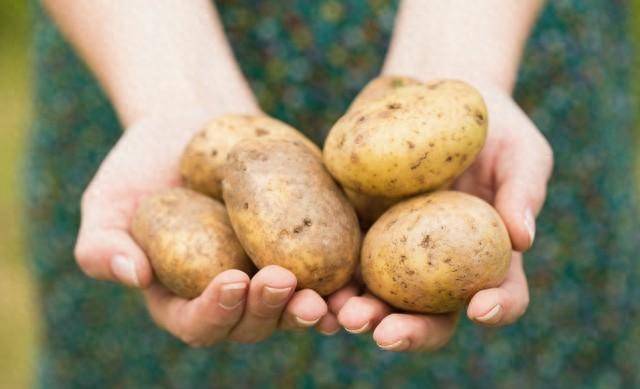In our daily food choices, vegetarian options are always considered healthier and lighter. However, when it comes to the common health issue of high blood lipids, even vegetarian options may not always be safe. Surprised? Yes, you heard it right. For a long time, we have been told that certain vegetarian foods like potatoes may not be beneficial for individuals with high blood lipids, but in reality,
Potatoes and High Blood Lipids: Analysis and Misconceptions
Individuals with high blood lipids often receive various dietary advice, with “avoiding the consumption of potatoes” being a common suggestion. However, is this advice based on science? Let’s delve into the nutritional value of potatoes themselves and how they affect lipid levels.
Potatoes are a type of root vegetable rich in carbohydrates, dietary fiber, vitamin C, B vitamins, and minerals such as potassium. The key to understanding the link between potatoes and high blood lipids lies in grasping the nature of their carbohydrates and the body’s response to these carbohydrates.
Firstly, the carbohydrates in potatoes are primarily starch, which can rapidly convert to glucose and lead to a short-term rise in blood sugar levels. For individuals with high blood lipids, strict control of blood sugar fluctuations is necessary because spikes in blood sugar can promote insulin secretion, affecting fat metabolism and potentially causing an increase in lipid levels.
However, the impact of potatoes is not fixed. It varies from person to person, depending on individual metabolism, the quantity and method of potato consumption. When potatoes are consumed by boiling, steaming, or baking and combined with healthy dietary fiber, protein, and healthy fats, their effects on blood sugar and lipids can vary significantly.
It’s worth noting that the dietary fiber in potatoes plays a positive role in maintaining gut health, slowing down glucose absorption, and lowering cholesterol. Therefore, completely excluding potatoes may not be the best dietary advice. Instead, the focus should be on overall dietary patterns, ensuring nutritional balance, controlling total energy intake, especially from simple carbohydrates.
5 Other Vegetarian Foods Besides Potatoes That Require Caution
When discussing the diets of individuals with high blood lipids, apart from the often misunderstood potatoes, there are several other vegetarian foods that require special attention. These foods, while nutritionally rich, may have unfavorable effects on lipid levels if not properly controlled.
1. Refined Grain Products
Refined grains like white bread, white rice, and other dehusked grain products have low fiber content, easily converting into sugars and causing sharp fluctuations in blood sugar and insulin levels. Prolonged excessive intake of refined grain products may lead to insulin resistance, affecting fat metabolism and causing elevated lipid levels.
2. High-Sugar Fruits and Vegetables
Some high-sugar fruits and vegetables such as sugarcane, pineapple, grapes, while containing natural sugars and various vitamins, also need to be consumed in moderation. Excessive consumption of these high-sugar fruits and vegetables may lead to an increase in blood sugar levels, which is detrimental to individuals with high blood lipids.
3. Sugary Beverages and Juices
Commercial sugary beverages and juices often contain high amounts of added sugars, and even products labeled as “100% pure juice” have concentrations of natural sugars much higher than a whole fruit. This high sugar intake can lead to excess energy, promoting fat synthesis, unfavorable for lipid control.
4. Deep-Fried Plant Foods
Although plant oils are considered a healthier source of fats, trans fats and oxidized lipids in deep-fried plant foods are extremely detrimental to cardiovascular health. These substances can increase LDL (bad cholesterol) levels, lower HDL (good cholesterol) levels, exacerbating lipid issues.
5. High-Fat Vegetarian Cheese and Dairy Products
Vegetarian cheeses and dairy products high in saturated fats, though not containing meat fats, excessive intake of saturated fats can also impact lipid levels. Choosing low-fat or fat-free versions of dairy products is a better option.
Healthy Dietary Advice: How to Choose Lipid-Friendly Vegetarian Options
To maintain healthy lipid levels, individuals with high blood lipids should adopt a comprehensive and balanced dietary strategy, focusing on selecting vegetarian options that are friendly to lipid levels. Here are some practical dietary recommendations.
Choose Whole Grains
Whole grains like brown rice, oats, and whole-grain bread are rich in dietary fiber and nutrients, helping to improve lipid levels. Dietary fiber can aid in lowering total cholesterol and low-density lipoprotein (LDL) levels in the blood.
Increase the Intake of Vegetables and Fruits
Fiber-rich vegetables and fruits can help control blood sugar, reduce the risk of cardiovascular diseases. Opt for low-sugar fruits and vegetables like berries, apples, pears, spinach, broccoli, to enrich your diet while controlling blood sugar and lipids.
Choose Healthy Fats
Monounsaturated and polyunsaturated fats like olive oil, avocados, nuts, and seeds are quality fat sources that can replace saturated fats, helping to improve lipid levels.
Control the Intake of Processed Foods
Reduce the consumption of processed foods and fast food, as these foods typically contain high amounts of saturated fats, trans fats, and added sugars, which are unfavorable for lipid control.
Maintain Overall Energy Balance
Pay attention to the total calorie intake, avoid excessive consumption of any type of food, including healthy foods. Excessive energy intake will eventually convert into body fat, affecting lipid levels.


